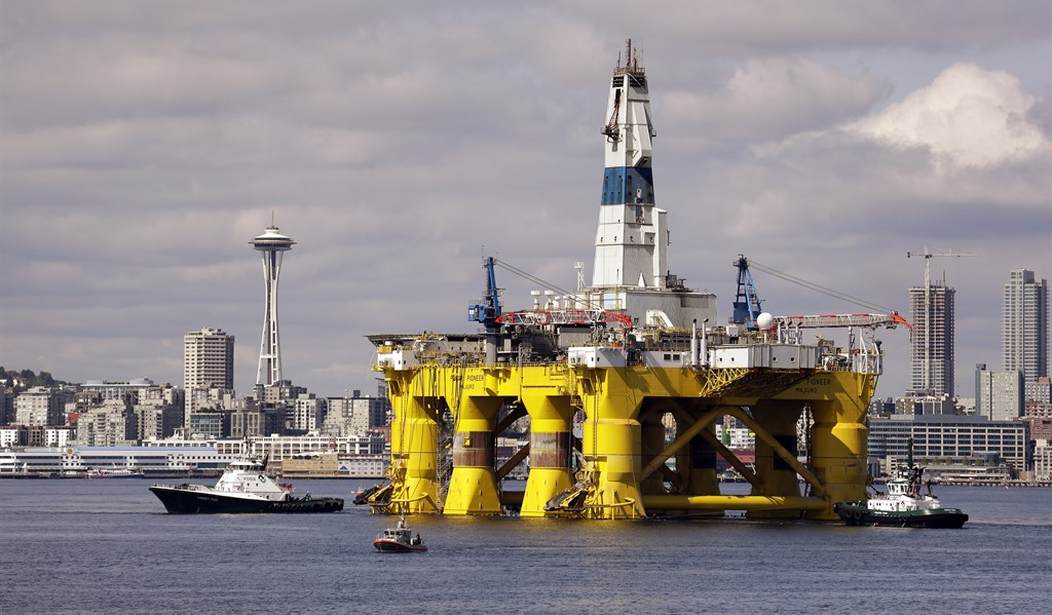Some of the Democrats who have been spiking the ball in the end zone after the passage of the so-called “Inflation Reduction Act” probably didn’t read all of the finer details in the bill. They’ve been celebrating its passage along with Joe Biden as the “biggest climate legislation” to ever be passed. They have also been grudgingly thanking West Virginia Democrat Joe Manchin for getting the bill over the finish line. But it turns out that Manchin snuck in a few items that haven’t drawn many headlines yet and the climate warriors aren’t going to be very happy about them. While there were billions of dollars for wind and solar energy incentives in the bill, there were also provisions to bolster the oil and gas industry and keep it viable for quite some time to come. And previously stalled permits for drilling both on federal lands and offshore are about to be back on track. (Associated Press)
The U.S. oil industry hit a legal roadblock in January when a judge struck down a $192 million oil and natural gas lease sale in the Gulf of Mexico over future global warming emissions from burning the fuels. It came at a pivotal time for Chevron, Exxon and other industry players: the Biden administration had curtailed opportunities for new offshore drilling, while raising climate change concerns.
The industry’s setback was short-lived, however. The climate measure President Joe Biden signed Tuesday bypasses the administration’s concerns about emissions and guarantees new drilling opportunities in the Gulf of Mexico and Alaska. The legislation was crafted to secure backing from a top recipient of oil and gas donations, Democratic Sen. Joe Manchin, and was shaped in part by industry lobbyists.
While the Inflation Reduction Act concentrates on clean energy incentives that could drastically reduce overall U.S. emissions, it also buoys oil and gas interests by mandating leasing of vast areas of public lands and off the nation’s coasts.
The most amusing part of this story is perhaps not the underlying news about new oil and gas leases, but the language the AP reporter chose to employ. After the CBO report came out, along with multiple analyses from economists, they’ve basically given up on calling the recent legislation the “Inflation Reduction Act.” In the title of the article, they simply call it the “climate bill.” They then go on to call it the “climate measure.” You have to dig down to the third paragraph before they bother mentioning the actual name of the bill as it was crafted.
The oil and gas industry news is still important, however. The AP makes a point of describing Joe Manchin as “a top recipient of oil and gas donations.” And he certainly has lived up to that description, but those donations paid off in this legislation. The block on the offering of new oil and gas exploration leases on vast tracts of public land, in the Gulf of Mexico, and off the shores of Alaska is being legislatively eliminated within thirty days.
As an added insurance policy, the language in that portion of the bill ties the green energy incentives that Biden and the Democrats sought to matching incentives for oil and gas exploration. If they want solar and wind on public lands, they “must offer new oil and gas leases first.” One energy analyst interviewed by the AP described it as a dawning realization by Democrats that they must “abandon the notion fossil fuels could soon be rendered obsolete.”
The oil and gas industry clearly saw this coming and they had been preparing. Despite the CEO of Chevron predicting earlier this year that no new oil refineries might ever be built in the United States again thanks to Joe Biden, we learned in recent weeks that Meridian Energy Group has received approval and is moving forward on construction of a new refinery in North Dakota. Two other previously shuttered refineries are undergoing refurbishment and will reopen later this year.
Don’t get me wrong, here. There are still plenty of awful things in this “climate bill.” But these additions lashing renewables and fossil fuels together have at least brought us a few significant steps closer to the “all of the above” energy policy that America needs to survive into the next century.








Join the conversation as a VIP Member